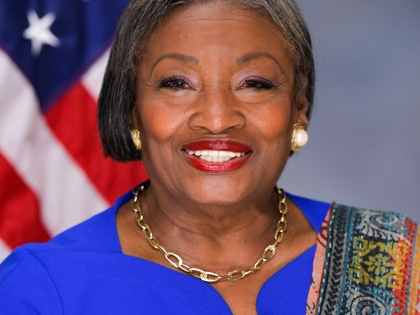
Yonkers Delegation and Local Partners Call For State Funds to Keep SNUG Running
Andrea Stewart-Cousins
March 18, 2013
-
ISSUE:
- Crime
- Gun Control
- Courts
- Criminal
State and local leaders in the City of Yonkers are fighting to keep a successful gun and gang violence prevention program called SNUG fully funded. At a Friday press conference, Senate Democratic Conference Leader Andrea Stewart-Cousins, Senator George Latimer, Assemblywoman Shelley Mayer and Assemblyman Gary Pretlow were joined by members of the Yonkers City Council, Yonkers Police Commissioner Charles Gardner, SNUG violence interrupters, local activists and members of the clergy to call on the State to provide steady funding for the SNUG Program.
SNUG has successfully helped reduce shootings and quell violence in Yonkers and in many cities throughout New York State.
The press conference was originally schedule to take place at the corner of Elm Street and Oak Street which is the heart of Nodine Hill, one of SNUG’s target areas, but was moved to the Yonkers YMCA due to weather. SNUG has been highly successful in Nodine Hill. In 2010 - the first year of SNUG - there were 8 shootings in Nodine Hill, but by 2012, that number dropped to 2.
Citywide, the statistics are also dramatic. In 2010, there were 34 shootings in the City of Yonkers. In 2011, the number dropped to 21, and by 2012, there were only 8 shootings in the City. This was a 76% drop from 2010-2012. The Yonkers Police Department says SNUG has been key to reducing citywide shootings.
Democratic Conference Leader Andrea Stewart-Cousins, who initially brought the SNUG Program to Yonkers, commented, “SNUG has been enormously successful at reducing shootings in Yonkers and many other communities throughout New York. But year after year, the future of this program is uncertain due to funding concerns. The SNUG Program has saved lives and helped young people understand that violence is not the answer. It has been and will continue to be a great investment in our communities. SNUG was created by the State, and it has produced real results, so the State should keep it running.”
The SNUG Program – which is “guns” spelled backwards – was created by the New York State Senate in 2009 with a $4 million allocation in the State Budget. The funding was distributed to targeted cities throughout the State, and Senator Stewart-Cousins was able to secure $250,000 to bring the program to the City of Yonkers. After a competitive process, the Yonkers Family YMCA was chosen to administer the program.
Since then, despite the program’s success, the future of SNUG has been a yearly concern due to lack of funding. In 2011, when SNUG funds had run dry and the program was in danger of shutting down, the State Division of Criminal Justice Services came through with a $150,000 grant to keep the program running for the remainder of the year. Recently, the Yonkers City Council and Mayor Spano allocated $100,000 to keep SNUG running until June of this year. State and local officials on Friday said this uncertainty is not necessary.
Modeled after the Ceasefire Program in Chicago, SNUG is a frontline violence prevention initiative which directly reaches out to at-risk youth. SNUG violence interrupters are on call every night to respond to and intervene in situations that could result in violence or escalate. The SNUG workers in Yonkers are mostly ex-offenders who have turned their lives around after serving time.
SNUG programs utilize grassroots neighborhood outreach, public awareness campaigns and community mobilization to engage youth. It’s a hands-on, street-level approach to prevent violence by shifting attitudes, changing ways of thinking and interrupting disputes before they spiral out of control.
SNUG has had a major impact statewide. In Albany, shootings dropped by 29 percent during the first eight months of Operation SNUG. In Rochester, there was a 40 percent decline in shooting victims over the course of SNUG’s first six months, and violent altercations fell to a 10-year low in targeted neighborhoods. Officials from the Community Action Organization of Erie County say Operation SNUG led to a marked decline in street violence in the 14215 and 14211 zip-code areas in Buffalo.